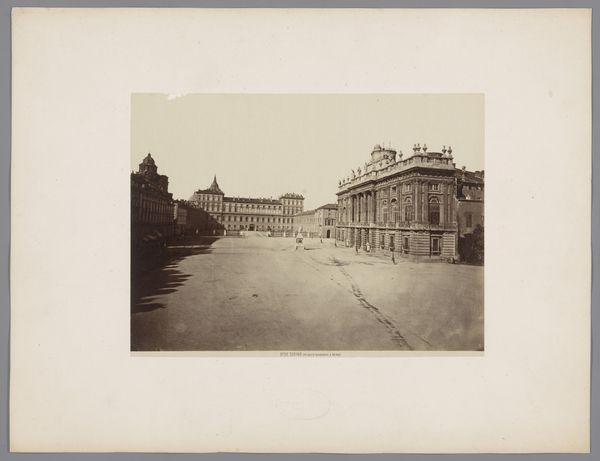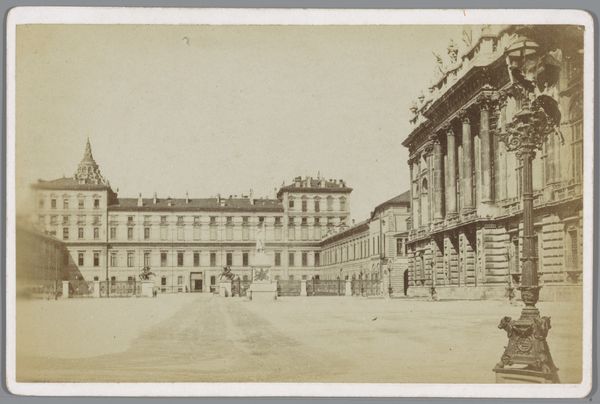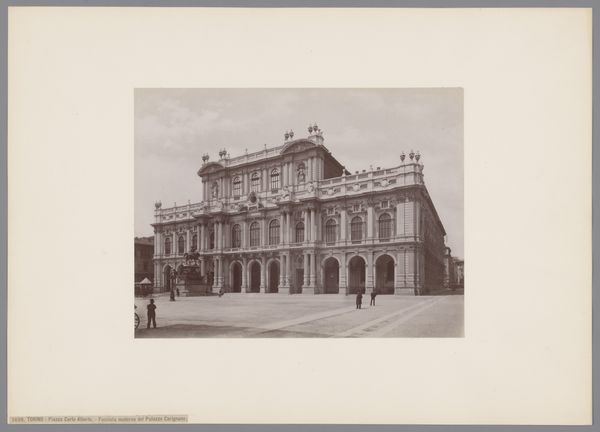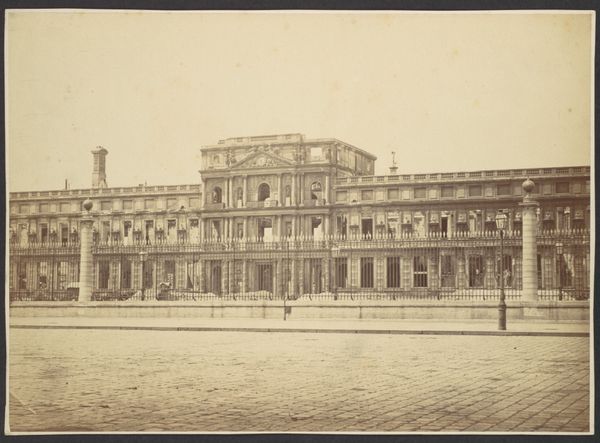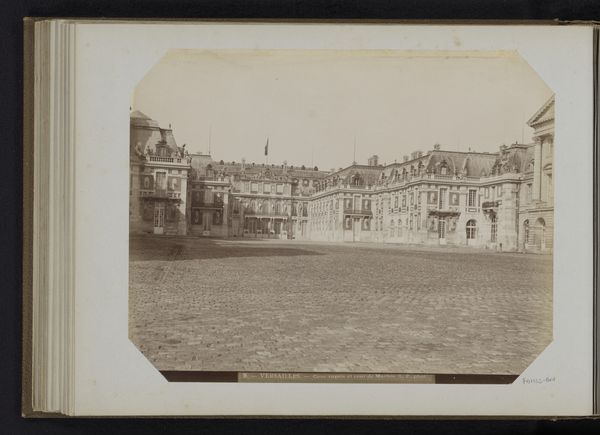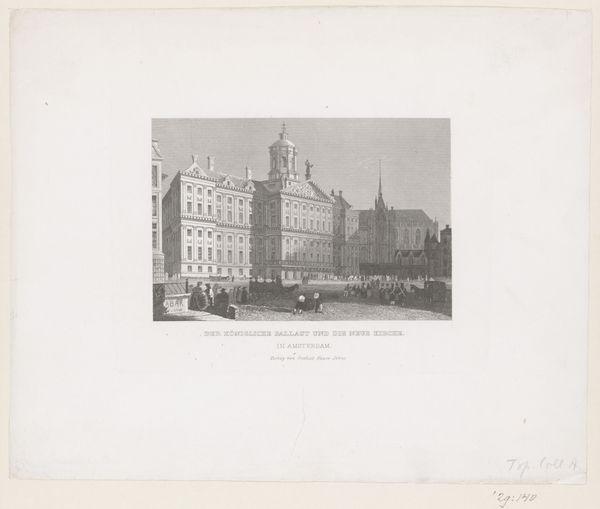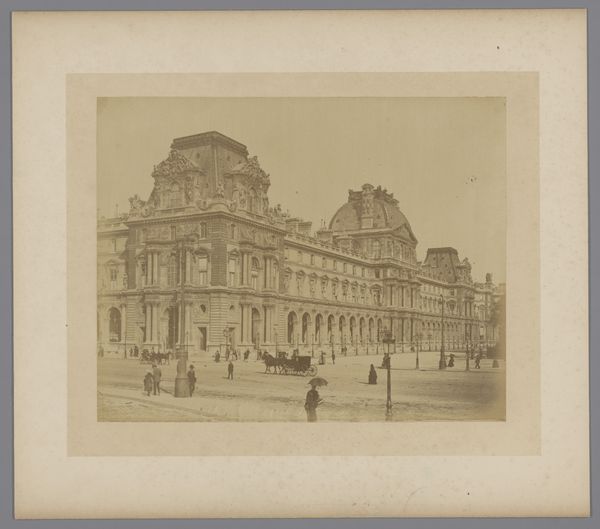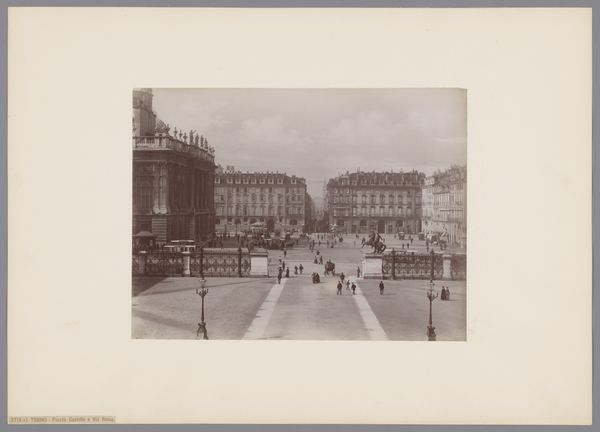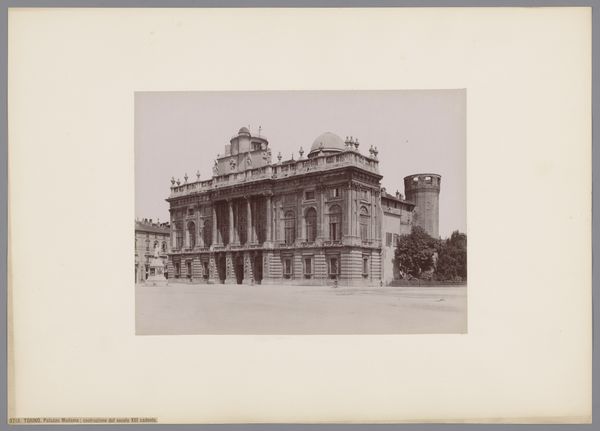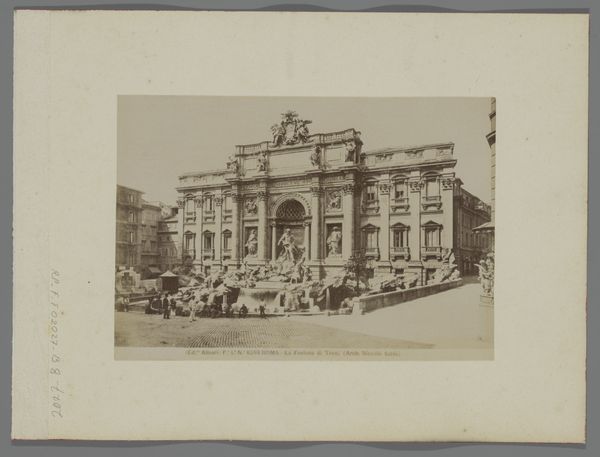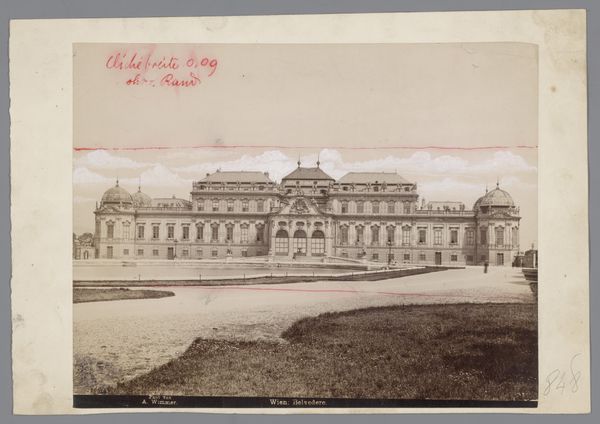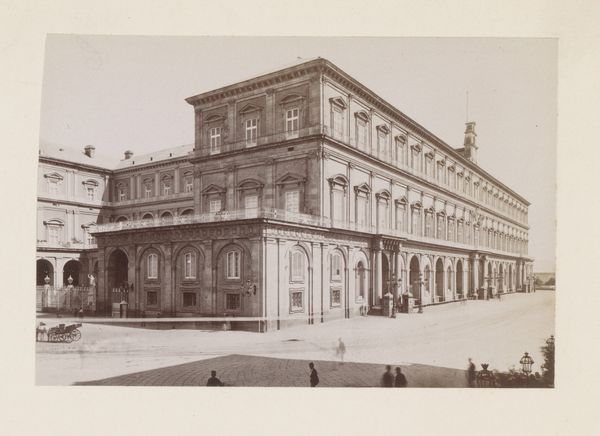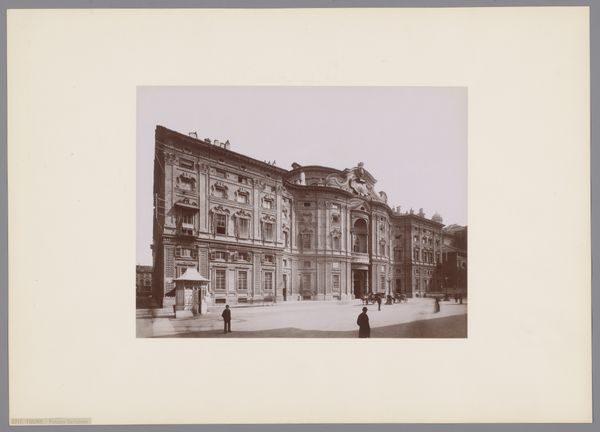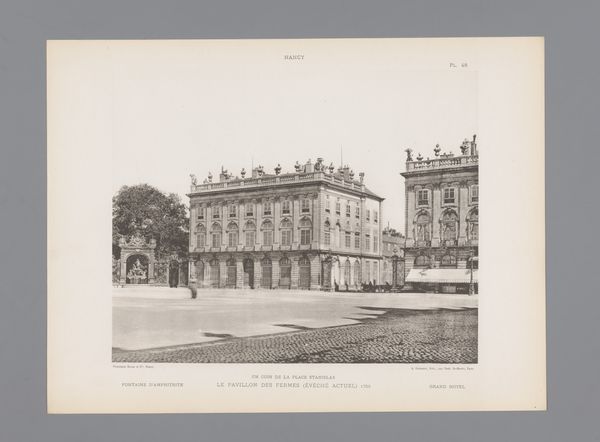
photography, gelatin-silver-print
#
pictorialism
#
landscape
#
photography
#
gelatin-silver-print
#
cityscape
#
italian-renaissance
Dimensions: height 260 mm, width 316 mm
Copyright: Rijks Museum: Open Domain
Editor: Here we have "Gezicht op het Piazza Castello te Turijn, Italië," a gelatin silver print by Fotografia Subalpina, sometime between 1899 and 1910. The buildings seem to loom so grandly over the open piazza... what jumps out at you when you look at this cityscape? Curator: I'm drawn to how the architecture speaks of power and permanence, Editor. Notice the precise arrangement, the classical columns and details rendered with clarity. This aesthetic calls to mind Roman ideals of civic order. This wasn't just a photograph of buildings; it's an assertion of a specific kind of cultural authority, an idea of Italy connected to its historical roots. Editor: So you see those Roman roots informing how even a photograph presents the city? Curator: Precisely. This carefully constructed image invokes memory. A large space like this often speaks to what happens inside those buildings, echoing ceremonies of power. Beyond just Renaissance architecture, the photographer's choice of sharp detail emphasizes a desire to record this perceived 'ideal' for posterity. A somewhat idealized look, don’t you think? Editor: Now that you mention it, I do. The light makes everything look so pristine. Was that common in photography from this era? Curator: Absolutely! Pictorialism sought to elevate photography to the level of painting. The lighting, the composition – these all contribute to the feeling that we are not just documenting reality, but crafting an idealized vision of it. This evokes the weight of history but in a carefully curated form. Editor: It’s interesting how a photograph can still carry such deliberate, symbolic weight. Curator: Indeed! Understanding the photographer's choices unveils how visual culture can construct meaning, connecting the past with the present. There's always more to see beyond the surface, Editor.
Comments
No comments
Be the first to comment and join the conversation on the ultimate creative platform.
